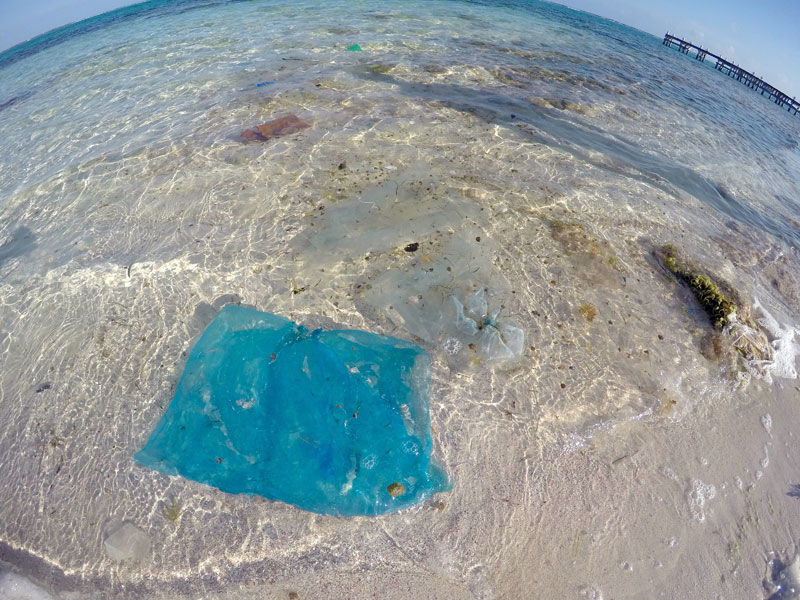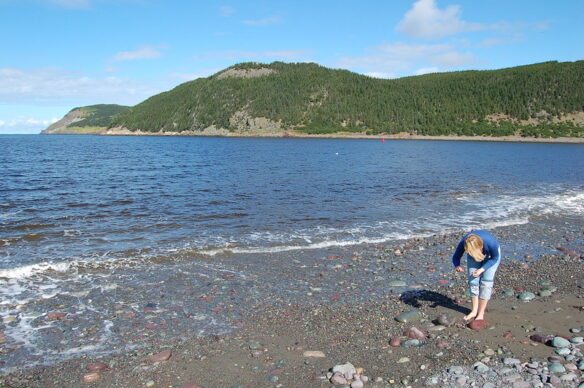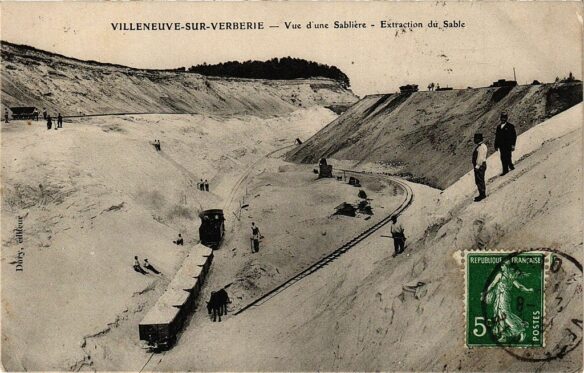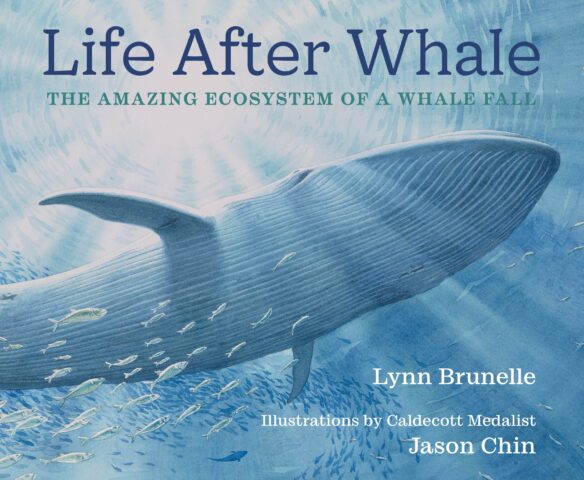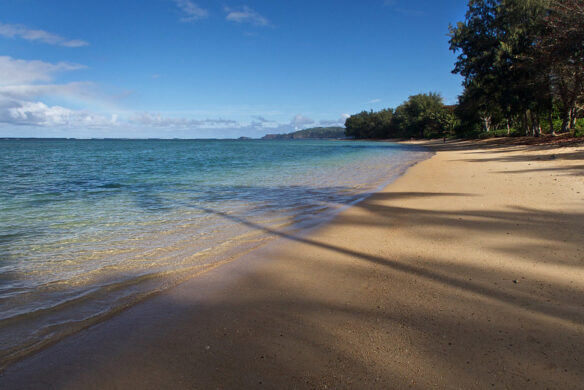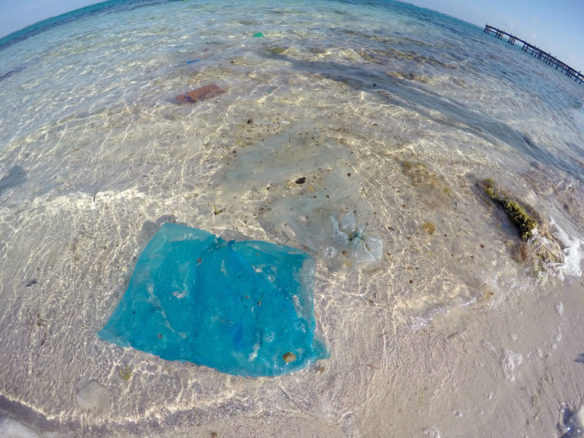
“The unprecedented plastic waste tide plaguing our oceans and shores, can become as limited as our chosen relationship with plastics, which involves a dramatic behavioral change on our part…”
Captions and Photo: © SAF — Coastal Care
Excerpts;
An interview with the Executive Director of United Nations Environment ERIK SOLHEIM ahead of the Dec. 4-6 3rd UN Environment Assembly in Nairobi, where 193 member states will discuss and make global commitments to environmental protection…
“Pollution from plastic waste being dumped in the ocean is costing the world at least 8 billion dollars every year, but this estimate is certain to be an underestimate when we factor in the cumulative, long-term consequences,” said the UNEP chief.
Between 4.8 million tonnes and 12.7 million tonnes of plastic waste enter the ocean every year, 80 percent of it from land sources due to inadequate waste management.
According to the Worldwatch Institute, plastic production is increasing 4-5 percent annually…
Read Full Article, The IPS News (12-02-2017)
More than 8. 3 billion tons of plastics made: Most has now been discarded; Science Daily (07-19-2017)
Humans have created 8.3 billion metric tons of plastics since large-scale production of the synthetic materials began in the early 1950s, and most of it now resides in landfills or the natural environment, according to a study.
Toxic timebomb: why we must fight back against the world’s plague of plastic; Guardian UK (05-16-2017)
We must reduce our dependence on plastics, especially single-use items, and seek out alternative materials…
No escaping ocean plastic: 37 million bits of litter on one of world’s remotest islands; Science Daily (05-15-2017)
The beaches of one of the world’s most remote islands have been found to be polluted with the highest density of plastic debris reported anywhere on the planet, a new study shows…
The Ocean Is Contaminated by Trillions More Pieces of Plastic Than Thought, IOP Science (12-08-2015)
This new study suggests there are 15 to 51 trillion micro plastic particles (those less than 200 millimeters in size) in the world’s oceans, weighing between 93 and 236,000 metric tons. This is about seven times more than scientists had previously estimated…
Video captures moment plastic enters food chain, BBC News (03-11-2017)
A scientist has filmed the moment plastic microfibre is ingested by plankton, illustrating how the material is affecting life beneath the waves. The footage shows one way that plastic waste could be entering the marine and global food chain…
New UN report finds marine debris harming more than 800 species, costing countries millions; United Nations (12-05-2016)
Marine debris is negatively affecting more than 800 animal species and causing serious losses to many countries’ economies, according to a United Nations report launched December 5th, 2016…
Plastic Pollution / When The Mermaids Cry: The Great Plastic Tide, Coastal Care ©-2009.
For more than 50 years, global production and consumption of plastics have continued to rise. An estimated 300 million tons of plastics were produced in 2015, confirming and upward trend over the past years, according to a new report by the World Economics Forum, released at Davos in January 2016.
Plastic is versatile, lightweight, flexible, moisture resistant, strong, and relatively inexpensive. Those are the attractive qualities that lead us, around the world, to such a voracious appetite and over-consumption of plastic goods. However, durable and very slow to degrade, plastic materials that are used in the production of so many products all, ultimately, become waste with staying power. Our tremendous attraction to plastic, coupled with an undeniable behavioral propensity of increasingly over-consuming, discarding, littering and thus polluting, has become a combination of lethal nature… — © SAF — Coastal Care
UN Declares War on Ocean Plastic, UNEP (02-23-2017)
To clean up ocean plastics, increase focus on coasts, Science Daily (01-19-2016)
The most efficient way to clean up ocean plastics and avoid harming ecosystems is to place plastic collectors near coasts, according to a new study…
From Myanmar to Mumbai: your images of plastic waste around the world; Guardian UK (07-15-2017)
Loving the Ocean Starts at Home, National Geographic (09-08-2016)
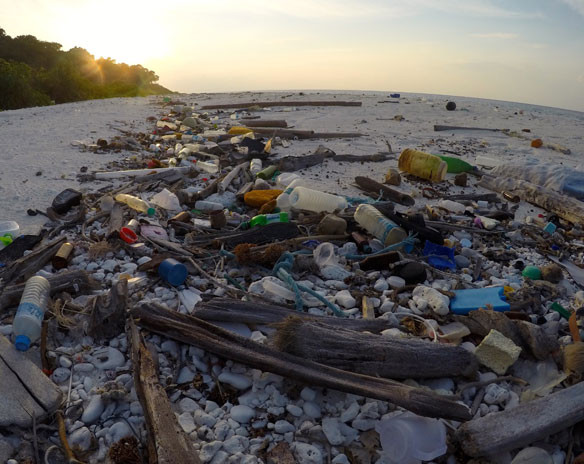
Although inhabited and remote, South Sentinel island is covered with plastic. South Sentinel, Andaman Islands, Bay of Bengal. Captions and Photo: © SAF — Coastal Care

